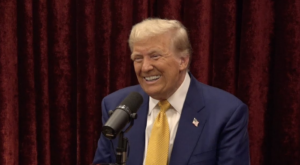As President Trump's government reform initiatives face legal challenges, his supporters argue that a judiciary bent on maintaining the status quo is obstructing necessary change.
Judicial Pushback: The Resistance Against Trump's Reforms

Judicial Pushback: The Resistance Against Trump's Reforms
Federal judges are clashing with Trump's agenda, leaving supporters feeling thwarted.
Despite the setbacks, Trump remains resolute in his mission, pointing to a public yearning for reform reflected in polling data.
The article text:
As President Trump's ambitious reform agenda faces legal hurdles in the form of federal judges issuing rulings that block or overturn key policies, backers are labeling this phenomenon as overt obstruction designed to protect an entrenched system. Supporters point to actions such as the reinstatement of thousands of dismissed bureaucrats, the return of billions in taxpayer money to controversial USAID projects, and legal orders to bring back deported foreign criminals as evidence of activist judges actively working to dismantle the will of the electorate.
Unfazed by these challenges, Trump argues that many of these judges, appointed through political channels, are deeply embedded within the very bureaucracy he aimed to reform. This judicial resistance further fuels the perception among many Americans that the political system is fundamentally flawed. Polling indicates that approximately two-thirds of citizens feel that the system is failing them, while detractors offer no substantial reforms, instead resorting to terms like "systemic racism" and "systemic injustice."
For years, critics have raised concerns about systemic issues without contributing tangible solutions for the countless individuals—regardless of race—striving for better lives. Trump's pledge to address these systemic failures has now collided with mainstream judicial pushback, highlighting the deep-seated fears among opponents regarding real transformation.
The article text:
As President Trump's ambitious reform agenda faces legal hurdles in the form of federal judges issuing rulings that block or overturn key policies, backers are labeling this phenomenon as overt obstruction designed to protect an entrenched system. Supporters point to actions such as the reinstatement of thousands of dismissed bureaucrats, the return of billions in taxpayer money to controversial USAID projects, and legal orders to bring back deported foreign criminals as evidence of activist judges actively working to dismantle the will of the electorate.
Unfazed by these challenges, Trump argues that many of these judges, appointed through political channels, are deeply embedded within the very bureaucracy he aimed to reform. This judicial resistance further fuels the perception among many Americans that the political system is fundamentally flawed. Polling indicates that approximately two-thirds of citizens feel that the system is failing them, while detractors offer no substantial reforms, instead resorting to terms like "systemic racism" and "systemic injustice."
For years, critics have raised concerns about systemic issues without contributing tangible solutions for the countless individuals—regardless of race—striving for better lives. Trump's pledge to address these systemic failures has now collided with mainstream judicial pushback, highlighting the deep-seated fears among opponents regarding real transformation.




















